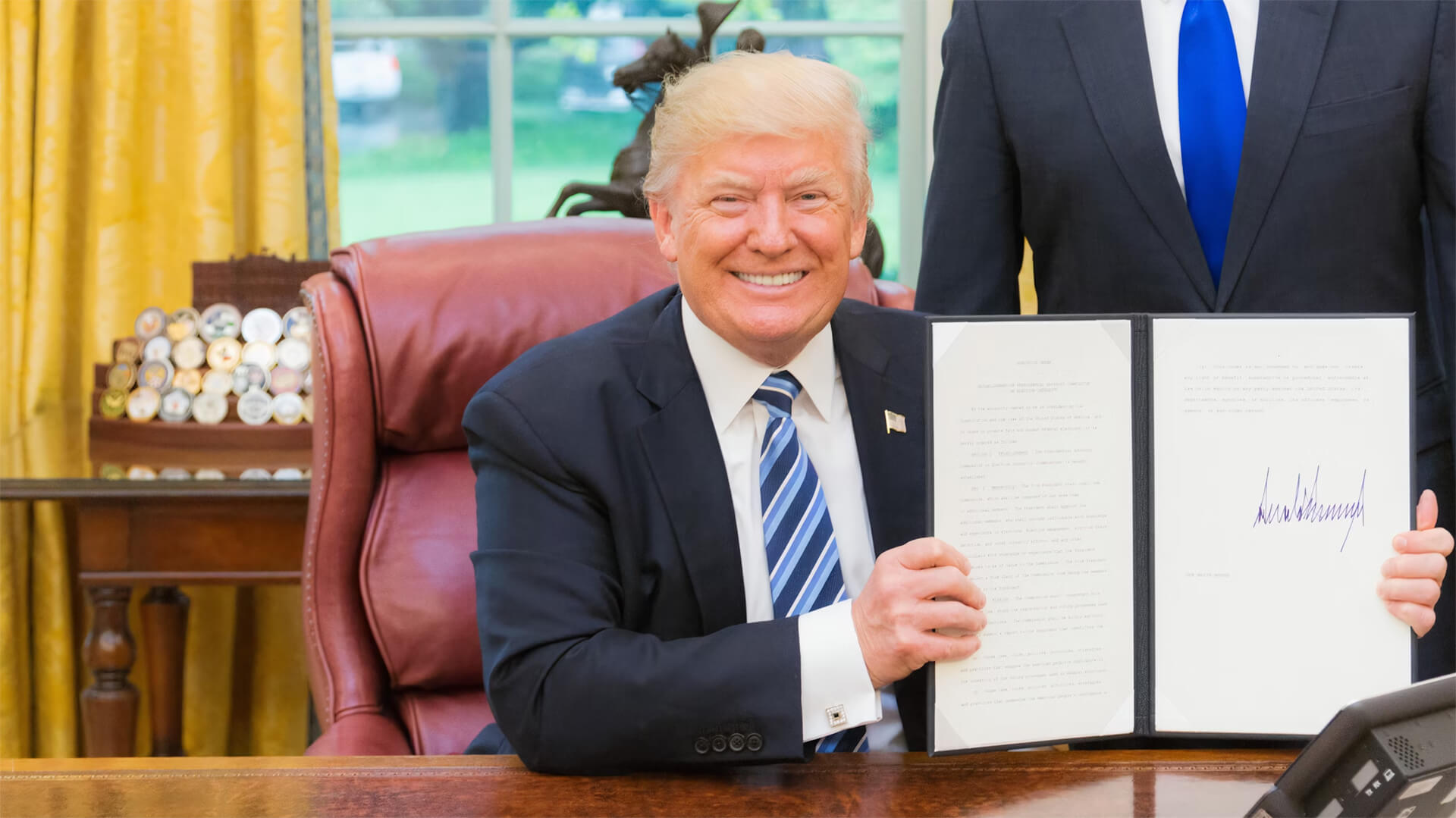President Trump suggested that Europe should buy US oil and gas to address trade deficits and strengthen alliances. I have a few qualms with this.
Trump talks a big game, but backing it up is a whole different story (meaning I wouldn’t recommend holding your breath while we wait and see if this comes to fruition). That’s not my only concern here though. Europe is facing a whole lot of issues, and prioritizing energy exports to a struggling region isn’t in the best interest of the US.
Instead, America’s energy resources should be allocated to emerging economies in regions that the US could use as strategic footholds and partners down the road. I’m talking Southeast Asia rather than Europe. Carefully selecting allies as the world deglobalizes is going to be very important…so, let’s hope Trump can do more than Tweet about all this.
Here at Zeihan on Geopolitics, our chosen charity partner is MedShare. They provide emergency medical services to communities in need, with a very heavy emphasis on locations facing acute crises. Medshare operates right in the thick of it, so we can be sure that every cent of our donation is not simply going directly to where help is needed most, but our donations serve as a force multiplier for a system already in existence.
For those who would like to donate directly to MedShare or to learn more about their efforts, you can click this link.
Transcript
Hey everybody. Peter Zeihan here coming to you from. Okay. Who are okay. Who are. Yeah, I think that’s it. On the Cape Brett track in Northland, New Zealand. Today we’re going to do a, something I’m not going to get in the habit of and commenting. And one of Trump’s threats, specifically says that the Europeans should purchase American oil and gas, in order to address their trade deficit, in order to cement the alliance.
Normally, I’m not going to do this because Trump says a lot of stuff, that usually just doesn’t survive the room. And he is packing his cabinet with functional incompetence. So the chances of any of his policies actually making it into, reality, whether it’s domestic, foreign, are pretty low. And this is no exception to that.
But, it’s an interesting hypothetical exercise to, think about because we are in a period where the world is reshaping and seemingly incoherent. Things like this actually could have an impact. So, the volume first, Europe. And I’m using Europe in the broadest sense. It includes the Balkans, includes Switzerland, includes the United Kingdom, as well as all of the European Union.
They use about 13 million barrels of crude a day. If you include refined product, as well as about 45,000,000,000 cubic feet of natural gas a day. And that’s roughly 50 to 60% of what the United States uses. They have more people than the United States has, significantly more. But their economy is smaller and it’s less energy intensive because they don’t have a lot of manufacturing.
And while the United States has been gone, going through this big Three industrialization boom, much of Europe is actually industrializing because they’re running out of energy because they’re under net of workers, because they’re running out of finance. It’s a demographic story as much as anything else. Anyway. If if, if the United States did decide that it wanted to fuel Europe, it would need to expand its oil production by like 2 or 3, 4 barrels a day, which is probably going to happen in the next five years anyway.
And for natural gas, we need to build out significant, LNG, liquefied natural gas export capacity. We have to double, almost triple what we have right now. And there are enough projects in the pipeline for that to happen over the next decade. So from a numbers point of view, it’s not a ridiculous idea. It would mean not sending product anywhere else.
And so problem number one with this plan is right now our number one energy destination for energy exports is Mexico. And without those exports, the lights go off. In Mexico, roughly half of Mexican electricity, for example, is generated by the use of American natural gas. And we send them over a million barrels a day of crude and refined product as well.
And that’s built into our manufacturing system. So if we were to send that somewhere else for, our number two destination is, Japan, which is a much tighter ally than many of the European countries. And in general, if you’re doing this to address a trade deficit, taking something we already sell and have no problem selling from one place and send it to another just generates a different numbers problem.
That’s part of the problem with Trump’s things is that, he assumes that every individual thing stands alone when it’s all usually interconnected anyway, let’s assume for the moment that Trump is serious that Trump’s team can make it happen, that the Europeans are amenable. The trade deficit isn’t the issue here. Never is. The issue is a strategic block.
We’re moving into a world where globalization is ending. And it’s not that I think the United States is going to have a problem finding takers for its commodity exports. Now, the issue is that not everyone will be able to afford or have the security situation. Well, that will allow them to access those materials. And if the United States were to make a strategic decision not based on the trade deficit, based on who we want to be our ally, who do we want to encourage to continue to exist in a globalizing world?
Europe is one of the places that should be considered, it keeps the Russians in a box. It gives you a foot in the Middle East without being in the Middle East. And there’s a lot of cultural history or baggage, if you prefer, with the European family, which is where the vast majority of Americans eventually trace the roots back to, there’s a very strong argument to be made that Europe is it. And that’s where we should play. And if the United States were to pour all of its energy exports because it would take all of it, then that is a viable bloc. And then you can talk about what comes from that agricultural fusion, manufacturing fusion, military fusion, and the idea that you have an American dominated system that includes the entire cultural West.
There’s an argument to be made that in a world that breaks into factions and regions, merging North America and Europe is arguably the most powerful option. Just keep in mind that if we do that, we no longer have the resources that are necessary to say, do the same thing with Korea and Japan, which are two advanced countries we currently have excellent relations with or with Southeast Asia, which is likely to be the most rapidly growing part of the world
Moving forward, the United States is going to have to do many of the things that other countries are going to have to do in a globalizing world. We’re going to have to make some choices. They’re going to be a little difficult. And choosing to pour all of our energy resources into Europe, which is a region that’s experience.
A demographic bomb might not be the biggest bang for the buck. Germany, for example. The industrial base is probably going to collapse within a decade because they won’t have a workforce in addition to their energy problems. A much better bet is probably Vietnam or Thailand or Myanmar or Indonesia. Malaysia, and I would expect that as the eurozone faces problems, because if you don’t have a consumption led economy, it’s really hard to have a currency as a eurozone prices problems.
The United States is going to be able to choose to work with individual European countries. France looks much more viable. The U.K. is much more viable. Spain is much more interesting. Central Europe will probably last longer than Germany, Italy in a worse demographic situation than Germany. But its geography is much more friendly for power projection. It’s easy to kind of break Italy off from the rest of Europe’s strategically.
So there’s a lot of ways you can cut this pie. And I applaud Trump for starting the conversation on what might be possible. But the specific idea that Europe buys American energy, the end. It doesn’t take us very far, but it does get us looking in the right direction.
Quick addendum from further down the trail. Because I know I’m gonna get some hate mail for that one. So let’s make sure that the hate mail is well informed. Hate mail. The reason I say that Polish is under Donald Trump just don’t tend to happen is, he tweets something out or whatever social media he’s using, and then he leaves the room, and usually that’s the end of it.
And that’s before you consider that he is appointing people to his cabinet who are functionally incompetent in their areas. It’s a little less true in foreign affairs. Some of the people look interesting. But the primary purpose of being on Donald Trump’s cabinet is to stroke his ego, to tell him he’s wonderful and to make him look good in public.
And the heartbeat that you step away from that, you lose your job. So in Trump’s first term, he went through more cabinet level secretaries, than any other three American presidents in history combined. There’s just not enough time for a meaningful policy to be discussed, formed, and put in practice before the person is kicked out. But even if that was not true, Trump is a horrible personnel manager.
One of the worst we’ve ever had. And the only other person in modern memory, who comes even close is Barack Obama, who was arguably the worst of the second worst. It’s just a difference of styles. Obama insisted on micromanaging every little thing, but then hated people and hated having conversations with them. So he never was available for anything to be managed.
So nothing happened. And so for eight years, we really only got one law consequence passed and we had no foreign policy whatsoever. Trump is of that caliber when it comes to outcomes. So you look at our last three presidents Trump, Biden, Obama. We’ve had 16 years where the world is falling apart, where globalization is ending. And decisions like this on regionalization really are important and do need to be made.
But we’ve had no one to lead the conversation or to carry it forward, or to turn it into policy. So kudos. Seriously, kudos to Trump for starting the conversation. And I will be pleasantly thrilled. Should the process proceed from here?








